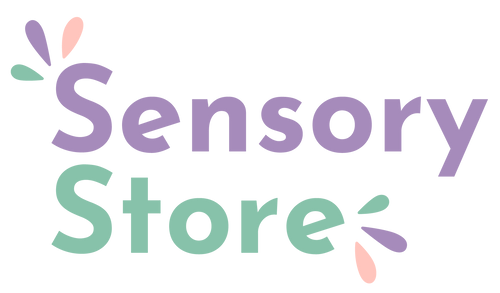Many parents think Montessori starts in preschool, but did you know that Montessori play can begin from birth? Babies aged 0–12 months benefit greatly from Montessori-inspired toys and activities that encourage independence, exploration, and natural development.
At SensoryStore.ie, we specialise in Montessori playkits for infants, making it easy to support your baby’s milestones with confidence.
Here’s everything you need to know about Montessori for babies in their first year.
Benefits of Montessori Play for Babies (0–12 Months)
Even in the first year of life, Montessori principles help babies thrive. Here are some of the top benefits:
-
Fine motor skills: Montessori toys like rattles and grasping beads strengthen coordination from the very first months.
-
Cognitive growth: Babies learn best in calm, uncluttered environments, which Montessori encourages.
-
Language development: Montessori babies are exposed to simple, clear language daily, boosting receptive language skills.
-
Emotional security: Respectful caregiving helps babies feel safe, secure, and more self-regulated.
-
Movement freedom: Instead of being restricted to swings or bouncers, babies explore through tummy time, rolling, and crawling.
-
Sensory richness: Natural materials and outdoor play give babies richer sensory experiences than plastic or screen-based play.
Montessori Toys for 0–12 Months
Wondering which toys are best for your baby’s first year? Montessori encourages age-appropriate, natural, and purposeful play materials.
-
0–3 months: High-contrast cards, black-and-white mobiles, soft rattles
-
3–6 months: Wooden grasping beads, textured balls, tummy-time toys
-
6–9 months: Soft stacking cups, sensory blocks, rolling toys
-
9–12 months: Object permanence boxes, simple puzzles, push-and-pull toys
Each toy is designed to support your baby’s developmental stage, not overwhelm them.
💡 Tip: Less is more! Instead of filling a room with toys, rotate a small selection every week or two.
FAQs About Montessori for Babies
1. Can babies under 1 year really do Montessori?
Yes! Montessori for infants focuses on creating a prepared environment, freedom of movement, and simple toys that match your baby’s stage.
2. Do Montessori toys have to be wooden?
Not always—but Montessori toys are usually made from natural, safe, and sustainable materials like wood, cotton, or silicone.
3. How is Montessori play different from regular play?
Montessori play is intentional. Instead of noisy, flashy toys, it offers calm, purposeful activities that encourage independence, focus, and exploration.
4. Do I need special training to do Montessori at home?
No! By choosing the right toys, setting up a safe play space, and following your baby’s lead, you can easily bring Montessori into your home.
Montessori at Home: Simple Tips
-
Create a safe play area on the floor with a soft mat.
-
Offer toys made from natural textures like wood and fabric.
-
Rotate toys to avoid overstimulation.
-
Follow your baby’s cues—let them lead play.
-
Spend time outdoors whenever possible.
Why Parents Love Montessori Playkits
Choosing the right Montessori toys can feel overwhelming, especially for first-time parents. That’s why we created SensoryStore.ie Montessori Playkits:
-
Age-specific toys for 0–12 months
-
Eco-friendly and sustainable materials
-
Instructional cards to guide parents on purposeful play
-
Available as one-time purchases or subscriptions
With each playkit, you can feel confident you’re supporting your baby’s milestones in a Montessori-inspired way.
Final Thoughts
Montessori play for babies isn’t about doing more—it’s about doing less, but with purpose. By giving your baby the right toys, space, and opportunities, you’re helping them build independence, confidence, and a lifelong love of learning.
✨ Explore our Montessori Playkits for Babies (0–12 months) and unlock your baby’s milestones—box by box.



